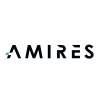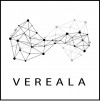22 Jan 2024
The NIA, as part of the OECD Steering Group of Advanced Materials, met on the 22 January 2024 as part of a series of meetings to validate tools developed to anticipate safety issues on novel materials such as advanced materials.
22 Jan 2024
In a significant move towards fostering international cooperation in the field of nanotechnology and advanced materials, the Nanotechnology Industries Association (NIA) and the Nanotechnology Business Creation Initiative (NBCI) have signed a Memorandum of Understanding (MOU) on 15 November 2023. This groundbreaking agreement marks a new era of...
12 Dec 2023
Following a previous SCCS conclusion on the safety of Hydroxyapatite (nano) when used at concentrations up to 10 % in toothpaste, and up to 0.465 % in mouthwash regarding rod-shaped Hydroxyapatite (nano) particles (see SCCS opinion Hydroxyapatite March 2023), industry has provided new evidence on the safety of Hydroxyapatite (nano) which now...
24 Nov 2023
The Malta Initiative just launched a survey to collect input on priorities where OECD Test Guidelines (TGs) and Guidance Documents (GDs) need actions to make them applicable for nanomaterials and (other) advanced materials, i.e. materials that come with specific properties and behaviour due to their size, shape and structure. You are invited to...
14 Nov 2023
During October 2023 the NIA Regulatory Affairs Director attended the CEN/352 Nanotechnologies meeting hosted in BSI (UK) where the status of the different CEN preliminary working items was presented and discussed and new ideas put forwards, regarding future standard needs from the Nanotechnology sector. The NIA remains open to new ideas from...
10 Nov 2023
A new freely available web based platform that the NIA helped developed will aid scientists developing and using internationally accepted testing standards for chemicals and nanomaterials.
The OECD publishes internationally agreed and accepted standard methods for the safety testing of chemicals and nanomaterials. Under the OECD Mutual Acceptance...
13 Sep 2023
The EUON report on NAMs for nanomaterials is available . This report is particularly useful to stakeholders wishing to explore nano-specific NAMs for regulatory purposes in human safety assessment. The report identified 220 NAMs of which only 8 were nano-specific, calling for more research on NAMs applicable to the nanosize. The report also...
18 Jul 2023
The NIA attended the WPMN 23 meeting at the OECD in Paris from 26-28 June where updates were presented and step foward actions discussed regarding the adaptation of OECD guidelines to nanomaterials, together with the status of the OECD SG on SSIA and on AdMa. The released updated guidelines were the OECD TG 126 on the Determination of the...
18 Jul 2023
The Advanced Materials Show was held in June at the NEC, Birmingham (UK) over 2 days. Co-located with The Advanced Ceramics Show, Battery Cells and Systems Show and The Vehicle Electrification Show, the trade show attracted around 3,500 delegates. The NIA was well represented at the show, with the NIA itself having a stand on which it was joined...
18 Jul 2023
On 15th June 2023 the JRC released the first application of the European Commission (EC) Safe and Sustainable by Design (SSbD) framework in a case study, in particular on plasticisers in food contact material. This work was performed by the EC’s Joint Research Centre (Ispra). Lessons learned include the challenge due to lack of publicly available...
29 Jun 2023
The Federal Office of Public Health in Switzerland has just released a new version of the Precautionary Matrix for Synthetic Nanomaterials.
21 Jun 2023
Four shows combine to showcase the very latest advanced technologies and innovations within battery technology, electric vehicles, advanced materials and technical ceramics at the NEC in June.
19 Jun 2023
EuroNanoForum 2023 was held recently in Lund under the Swedish Presidency of the European Council. Held every two years, the event brings together European Commission policymakers with the wider nano community from academia and industry. Landon Mertz, NIA Chair and CEO of US company Cerion Nanomaterials, was invited to give a keynote presentation...
19 Jun 2023
NIA’s Interim Director General, Sean Kelly, recently attended the bi-annual nanoSAFE conference, which this year was also held in conjunction with the EU NanoSafety Cluster's Nanoweek. Organised by NIA member CEA, the nanoSAFE conference is held every two years in Grenoble, with this year’s being the 8th edition.
19 Jun 2023
On 2nd May the Commission released the much-awaited Guidance on how to test for nanomaterials following the new recommendation of a definition (2022/C 229/01) adopted by the European Commission in 2022. The guidance builds from the two JRC Science for Policy Reports EUR 29647 and EUR 29942 and provides an overview of key terms and concepts, a...



















